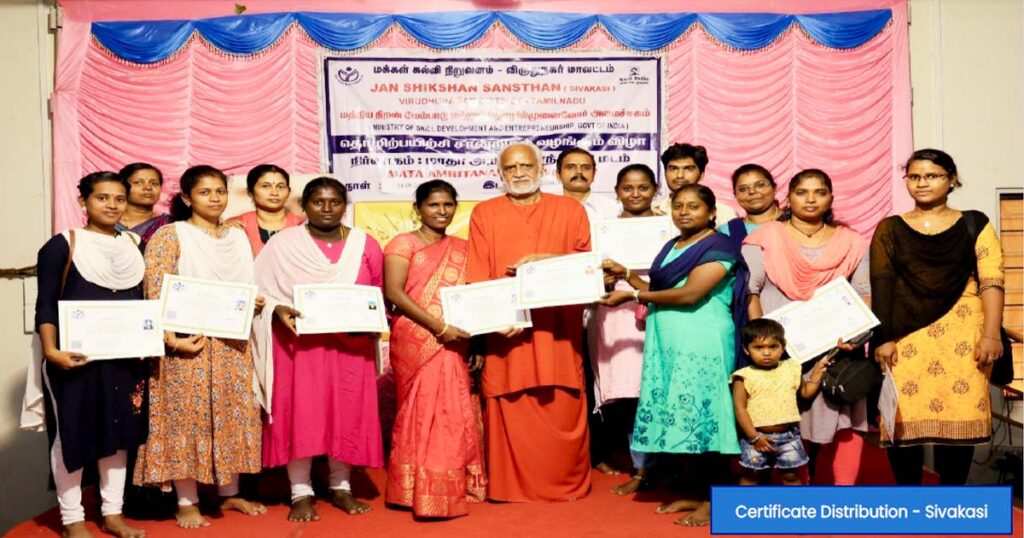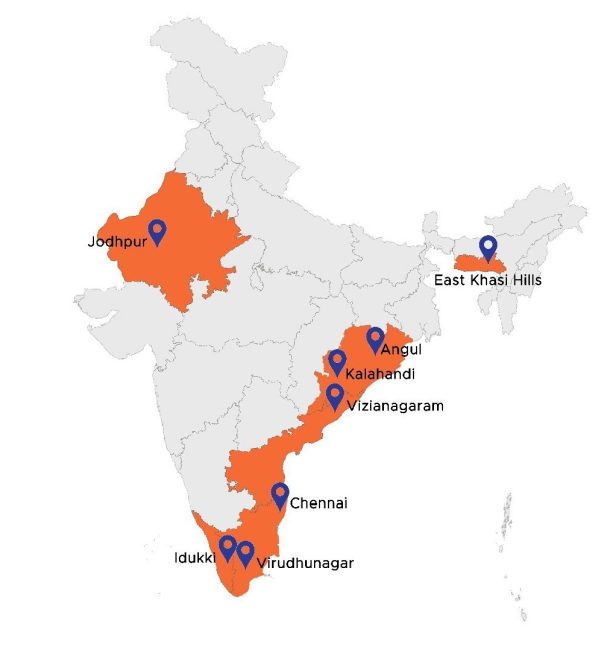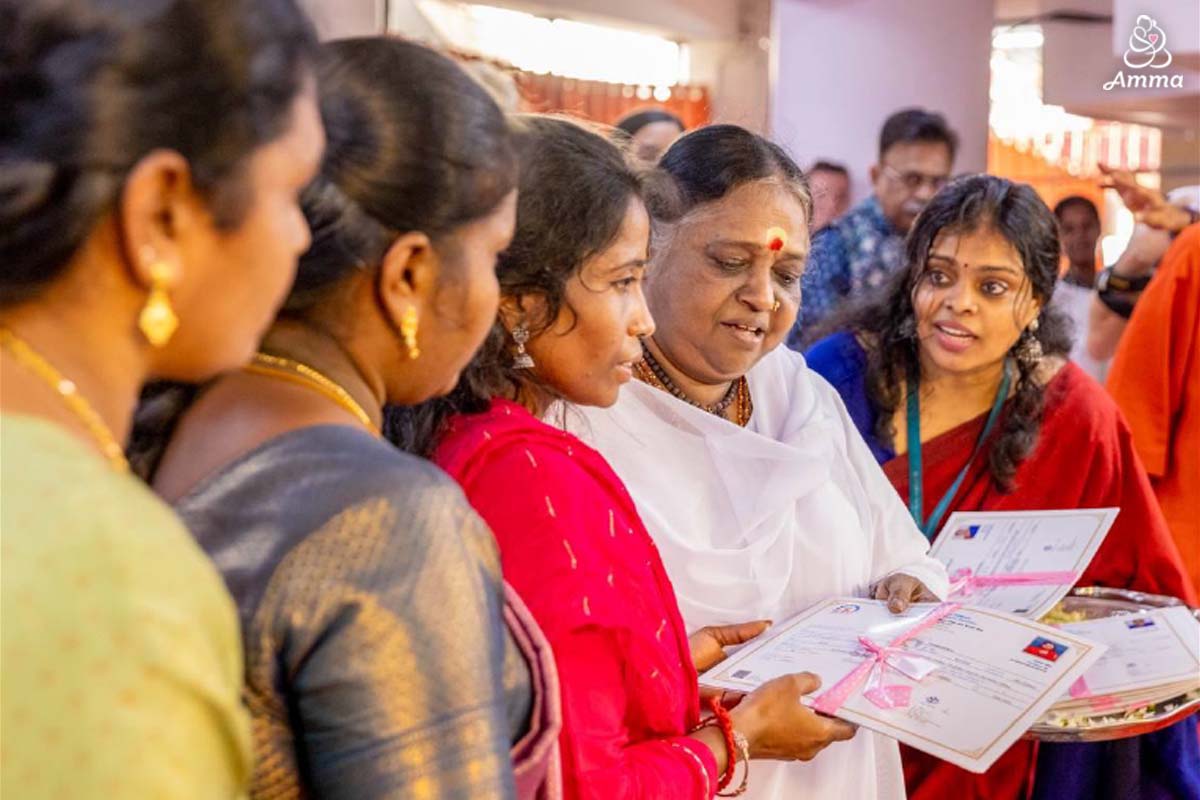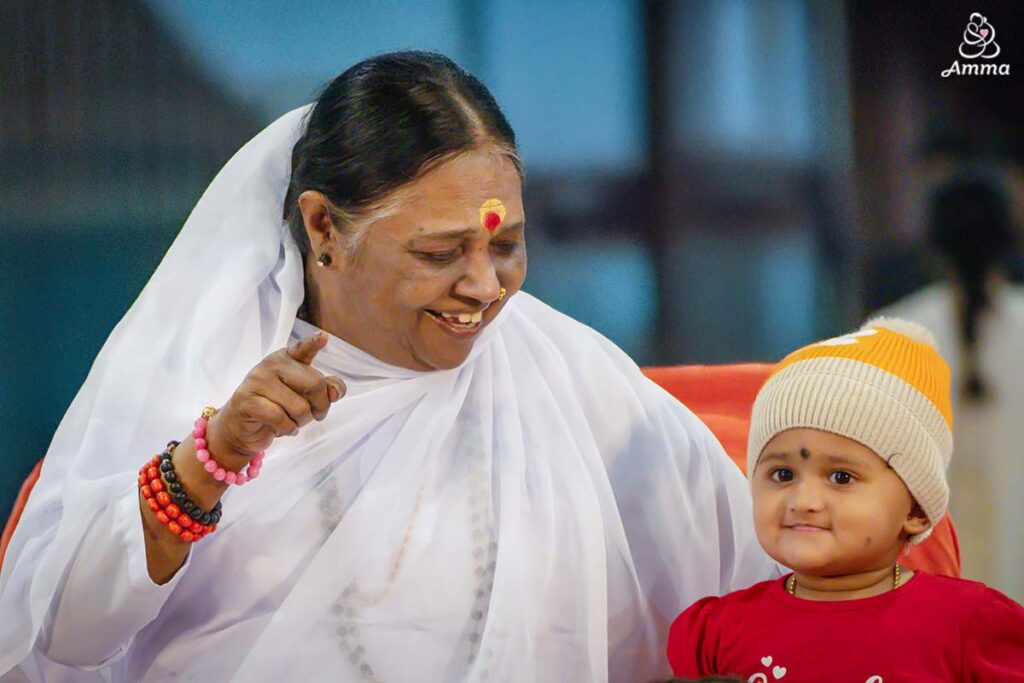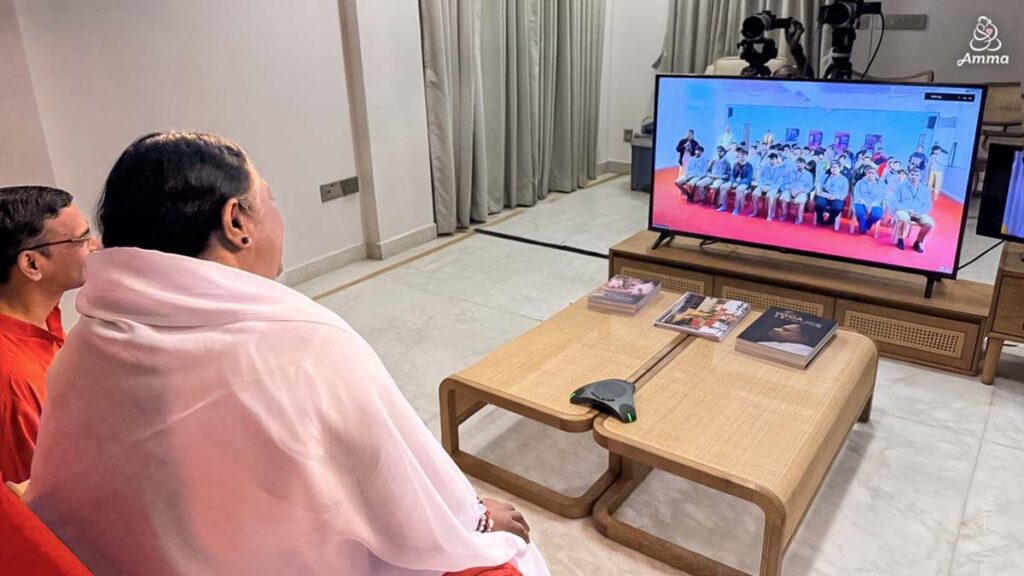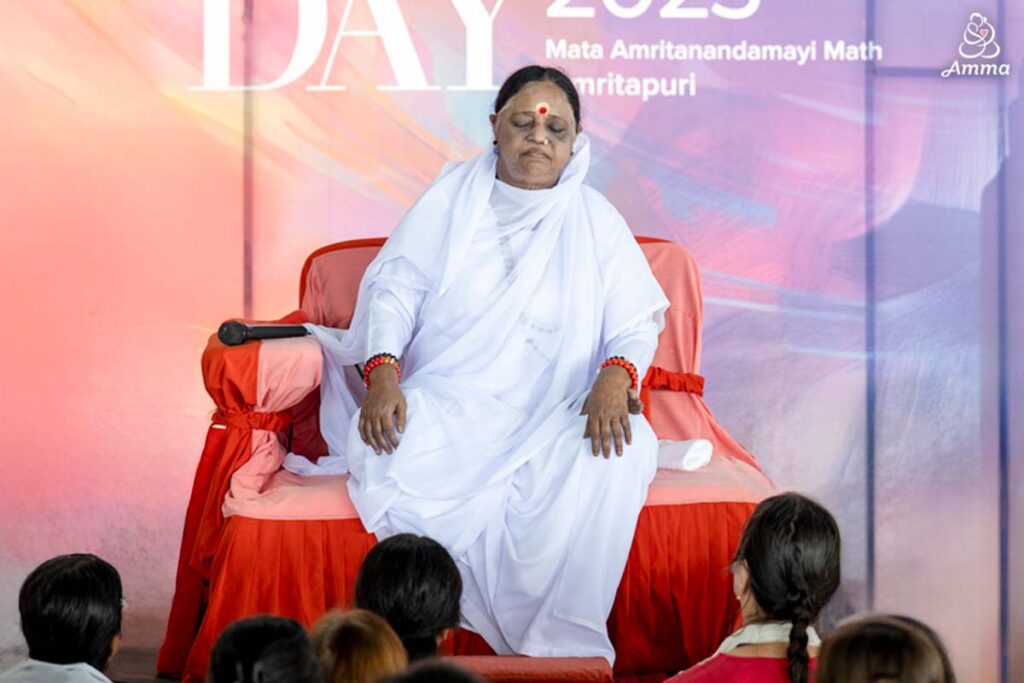It is an initiative that not only provides skills to earn a living. Since 2003, Amrita-JSS has instilled some of India’s poorest of the poor with self-confidence and hope. Today, 101,308 people have been trained in vocations ranging from tailoring to plumbing to beauty care.
Funded by India’s Ministry of Skill Development and Entrepreneurship (MSDE), we work to uplift the most marginalised sections of society with a focus on women, scheduled castes, scheduled tribes, minorities, and other marginalised communities.
The training courses are provided free-of-cost for non-literates, neo-literates, and others who live below the poverty line, especially in remote rural areas. We collaborate with the people to find out what areas of work are in alignment with their way of life, alongside local market demand.
Manju left school in Class 5 but always loved bright fabrics. After our Assistant Dress Maker training in Jodhpur, she rented a second-hand machine from her relative and began stitching for factory workers’ families. Festival seasons keep her awake past midnight, yet the average of ₹10,000 per month feels worth every stitch.
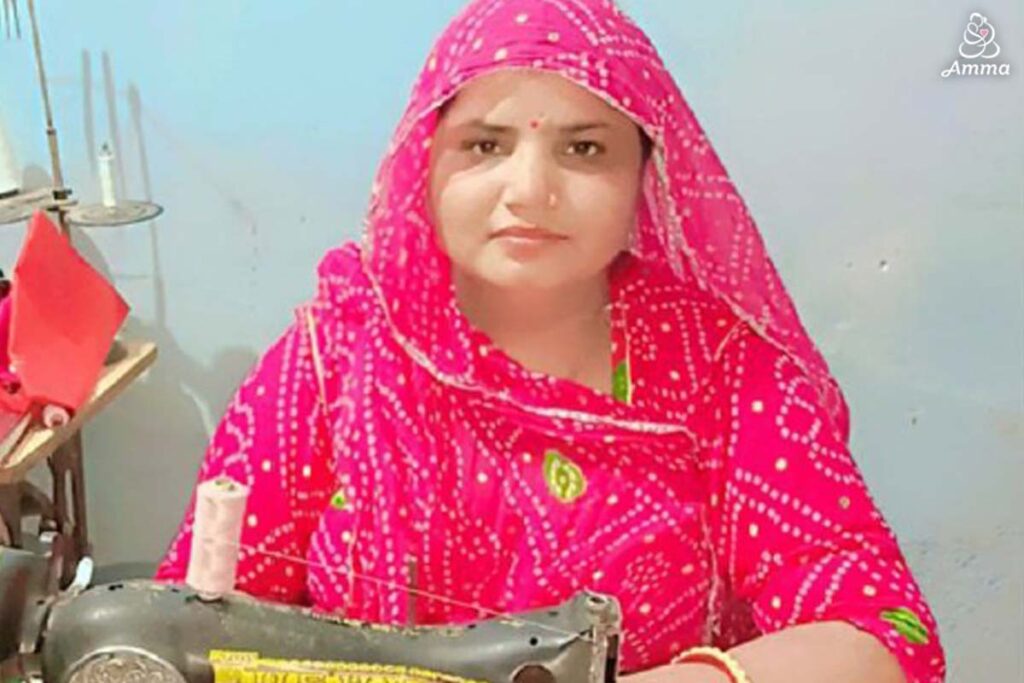
I count each finished piece and think that’s another bill paid.
Manju, Jodhpur, Rajasthan
Since the people lack infrastructure and resources, we take the initiative to arrive at their doorsteps. We run eight main training centres throughout the country—Idukki, Kerala; Virudhunagar and Chennai, Tamil Nadu; Angul and Kalahandi, Odisha; East Khasi Hills, Meghalaya; Vizianagaram, Andhra Pradesh; and Jodhpur, Rajasthan.
From each of these centres, local training units are set up throughout the districts. Today, our programs have reached 586 rural villages with 72,004 trainees, as well as 109 underprivileged semi-urban and urban areas, including colonies and slum pockets, training an additional 29,304 beneficiaries.
Mona Lama lives in Jhalupura, Shillong in the East Khasi Hills. A mother of two, she had studied up to Class 9. She found out about our beauty care training on social media and decided to join. After completing the course, she started “Mona’s Beauty Salon” in her neighbourhood. She now earns around ₹10,000 a month.
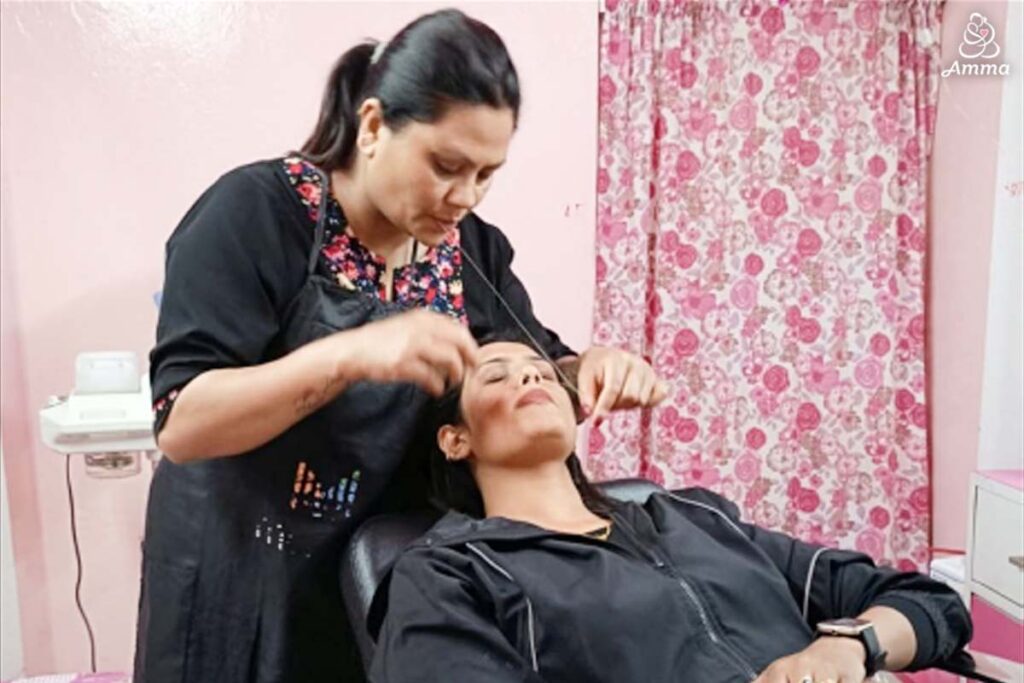
I never thought I could run a business, but this training gave me courage.
Mona Lama, Jhalupura, East Khasi Hills, Meghalaya
In this past year alone, 84% of the 14,295 students were women with a total of 15 courses and over 714 batches. The trainings are based upon identifying inherent skills in the communities along with the relevant market demand in their regions. This creates a foundation to lead financially secure and dignified lives, alongside enabling local trades to grow.
The most popular courses include a wide set of talents—self-employed tailor, beauty care assistant, jute product maker, bamboo crafts, hand embroidery, computer operator, two-wheeler mechanic, food processing, domestic care assistant, electrical technician, plumbing & sanitation, welder & fabricator, textile printer, and fruit & vegetable preservation.
In the village of Behera in Kalahandi, 40 women seized the chance to learn tailoring and embroidery together. Over two years, they practised cutting, stitching, and fine handwork until their trainers saw a bigger dream taking shape. From a unit in their own village, they turn out school uniforms, jute bags, office folders, and other garments for nearby markets, sharing about ₹60,000 in monthly earnings.
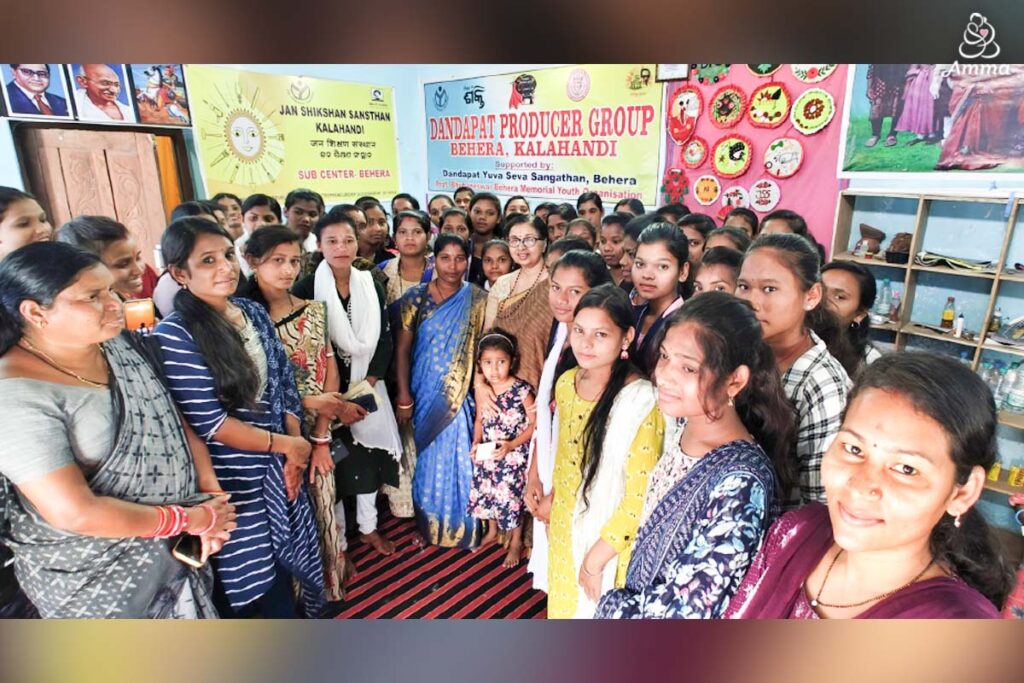
When we sit side-by-side at the machines, it feels like we’re sewing a stronger future for all.
Dandapat Producer Group, Behera, Kalahandi, Odisha
The participants are officially awarded NCVET-Skill India Certificates from the Govt of India after successfully clearing external assessment. This gives them a true sense of validation, opening doors to new lives.
Their achievements are celebrated at a valedictory function where local government officials and community leaders distribute the certificates and recognise the trainees’ achievements, encouraging them to move forward with faith in themselves.
Christian MB is from the small village of Rajamudy in the High Ranges of the Western Ghats. He completed our Electrical Technician course in Idukki. Today, he earns ₹24,000 per month working as a Solar Fitter, installing panels, inverters and safety gear for a local company. The regular income has improved household stability.
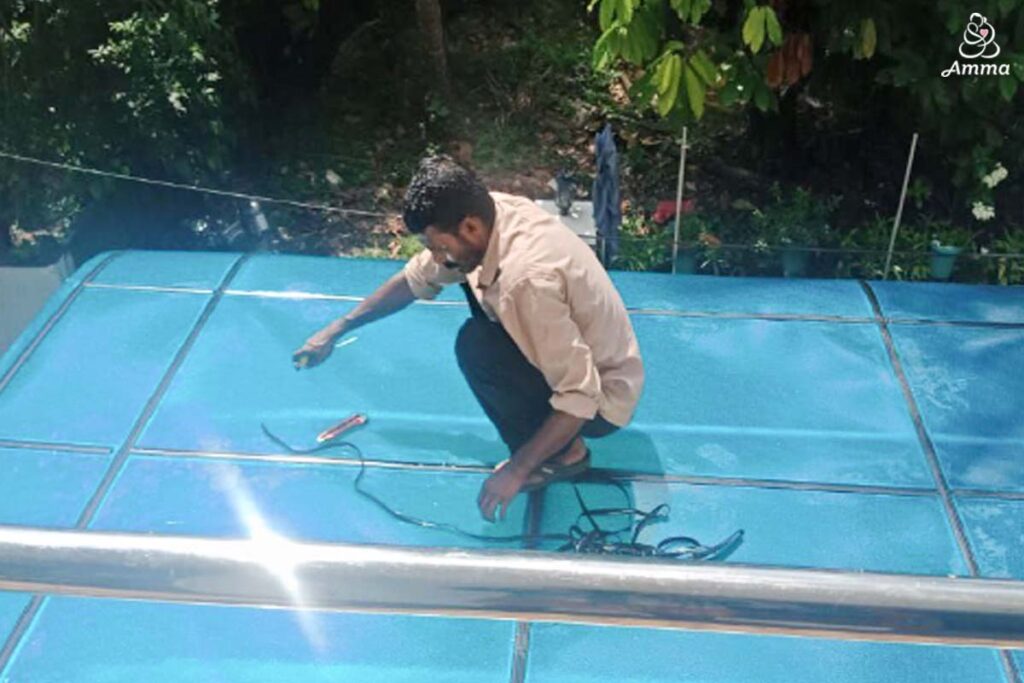
Every rooftop I finish feels like progress for my family and me.
Christian MB, Rajamudy, Idukki, Kerala
To support deeper transformation in the participants, we also organise community events to encourage a sense of societal belonging, social awareness, and cultural celebrations. The people are uplifted as they gather for occasions such as Republic Day, International Women’s Day, World Health Day, and more.
In essence, Amrita-JSS transforms vulnerability into strength. It is a pathway to restoring dignity for people often left behind, allowing space for self-reliance and courage to blossom in their hearts.
